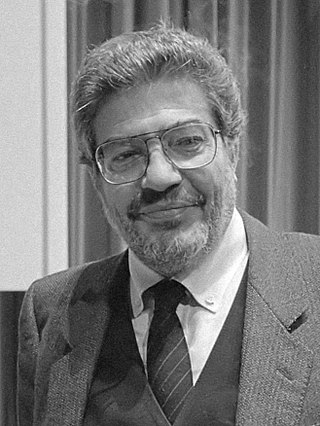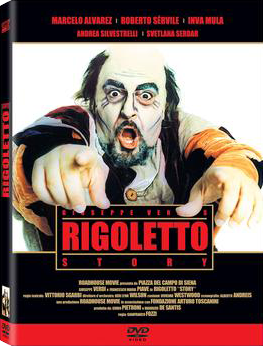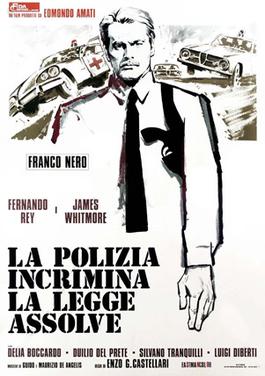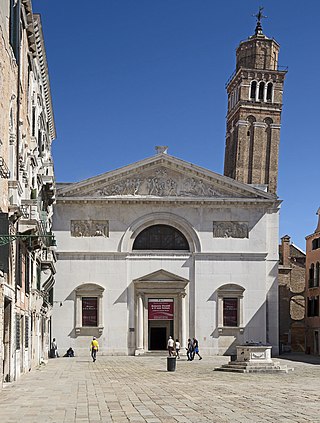Related Research Articles

Vittorio De Sica was an Italian film director and actor, a leading figure in the neorealist movement.

Maurizio Costanzo was an Italian television host, journalist, screenwriter, and film director.

Ettore Scola was an Italian screenwriter and film director. He received a Golden Globe for Best Foreign Film in 1978 for his film A Special Day and over the course of his film career was nominated for five Academy Awards for Best Foreign Language Film.

Giuseppe Verdi's Rigoletto Story (2005) is a film version of Giuseppe Verdi's 1851 opera Rigoletto. Filmed in Siena in 2002, it was directed by Gianfranco Fozzi and produced by David Guido Pietroni and Maurizio De Santis distributed worldwide by Columbia TriStar Home Entertainment and Sony Pictures Home Entertainment.
Alberto Grimaldi was an Italian film producer.

High Crime is a 1973 Italian-Spanish poliziottesco film directed by Enzo G. Castellari. The film stars Franco Nero, James Whitmore, Delia Boccardo and Fernando Rey. High Crime was a big success at the time of its release, and helped popularize the Italian cop thriller genre.

Furio Scarpelli, also called Scarpelli, was an Italian screenwriter, famous for his collaboration on numerous commedia all'italiana films with Agenore Incrocci, forming the duo Age & Scarpelli.
Maurizio is an Italian masculine given name, derived from the Roman name Mauritius. Mauritius is a derivative of Maurus, meaning dark-skinned, Moorish.
Edmondo Amati was an Italian film producer. He produced 55 films between 1964 and 1984, including Dominion: Prequel to the Exorcist (2005), U-571 (2000), Golden Balls (1993), Cannibals in the Streets (1980), L'ultimo squalo (1980), Holocaust 2000 (1978), Strange Shadows in an Empty Room (1976), L'anticristo (1974), Romanzo popolare (1974), Polvere di stelle (1973), Il Consigliori (1973), Sette scialli di seta gialla (1972) and In nome del popolo italiano (1971).

Hercules the Avenger is a 1965 Italian adventure film directed by Maurizio Lucidi. It was composed mostly of re-edited stock footage from Reg Park's two 1961 Hercules films, Hercules at the Conquest of Atlantis and Hercules in the Haunted World.

Claudio Merlo is an Italian professional football coach and a former player, who played as a midfielder.
The Nastro d'Argento is a film award assigned each year, since 1946, by Sindacato Nazionale dei Giornalisti Cinematografici Italiani, the association of Italian film critics.

Violent Rome is an Italian 1975 poliziottesco film directed by Marino Girolami It obtained a great commercial success and launched the career of Maurizio Merli. The film is the first entry into the Commissioner Betti Trilogy.

San Maurizio is a Neoclassical-style, deconsecrated church located in the campo San Maurizio in the sestiere of San Marco of the city of Venice, Italy. It now is a Museum focusing on the music of Baroque Venice.
Martina Amati is an Italian BAFTA winning filmmaker and artist. Her work is known for underwater and gravity defying scenes.

Piero Vivarelli was an Italian film director, screenwriter and lyricist.
Bruno Zambrini is an Italian composer and record producer.

Hector the Mighty is a 1972 Italian comedy film directed by Enzo G. Castellari. A parody of Homer's Iliad set in modern times, it is loosely based on the 1966 novel Le roi des Mirmidous by Henri Viard and Bernard Zacharias.
Pietro Valsecchi is an Italian film and television producer. In 1991, he and Camilla Nesbitt founded the Italian production company Taodue. In 1995, he won the David di Donatello for Best Producer for his film Un eroe borghese. In 2016, he won the Nastro d'argento for best producer, with Quo Vado?, Chiamatemi Francesco and Don't Be Bad.
Amati is the last name of a family of Italian violin makers who lived at Cremona from about 1538 to 1740, and may refer specifically to:
References
- ↑ The New York Times
- ↑ "Maurizio Amati". mymovies.it. Retrieved 10 October 2019.